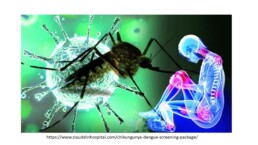
- Les Grands Projets financés
- CHIKGENE
CHIKGENE
PorteursJean-François Zagury Affiliation porteursGBCM, Conservatoire National des Arts et Métiers, Paris
Genotyping of patients from La Réunion island by low coverage sequencing and imputation for search of
new variants associated with long-term Chikungunya manifestations
Infection by the Chikungunya virus (ChikV) has been accompanied by a high morbidity, with half of the infected patients being incapacitated in the long run. In its acute form, ChikV causes Chikungunya fever, a dengue-like illness characterised by the combination of fever, rash, headache and arthralgia. Its epidemic re-emergence since 2006 has increasingly been associated with persistent and incapacitating manifestations, mainly in the rheumatologic and neurologic spheres. ChikV thus constitutes — with several other arboviruses such as dengue and the recently emerging Zika virus — a major public health concern worldwide. Currently, there is no treatment nor vaccine available to overcome the burden of such disabling disease.
The molecular and genetic determinants of ChikV infection responsible for its chronic manifestations are still poorly understood. Whether these manifestations could be the consequences of a persistent ChikV infection or the residual sequelae of an acute reversible disease is still hotly debated. The Chikgene project proposes to undertake a host genomics approach (high-throughput genotyping, and transcriptome) to identify the genetic factors of resistance/susceptibility against ChikV infection or against long-term manifestations, in order to better understand the molecular mechanisms at stake and allow the rational development of new diagnostic or therapeutic approaches.

